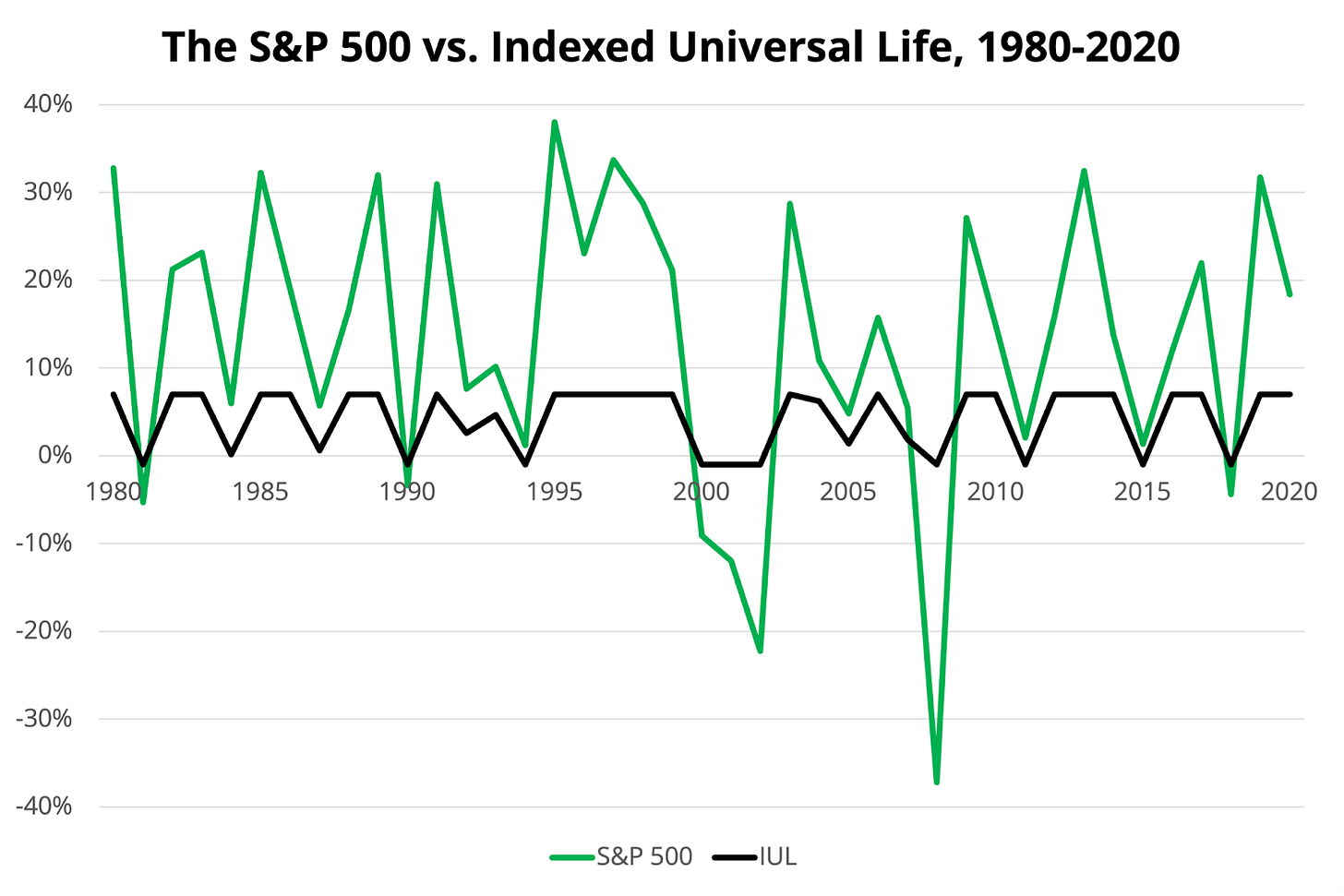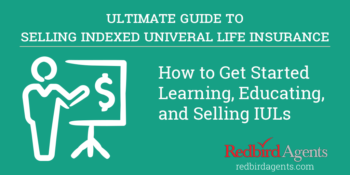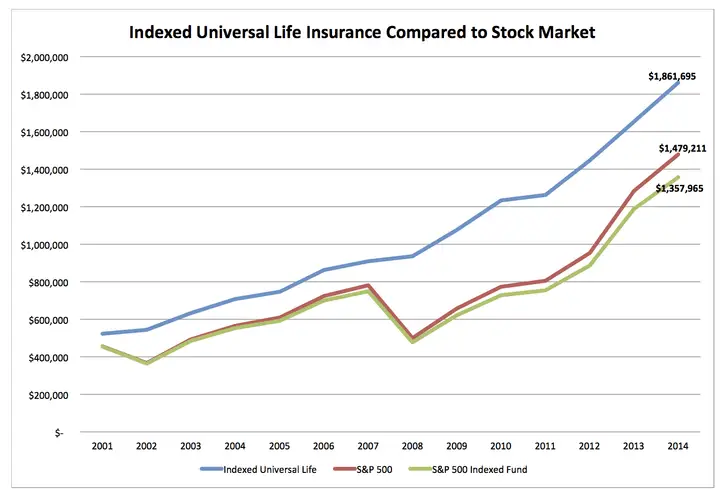All Categories
Featured
Table of Contents
1), typically in an effort to beat their group standards. This is a straw guy disagreement, and one IUL people like to make. Do they compare the IUL to something like the Lead Overall Securities Market Fund Admiral Show to no load, an expenditure ratio (ER) of 5 basis factors, a turnover proportion of 4.3%, and an extraordinary tax-efficient record of circulations? No, they compare it to some dreadful proactively handled fund with an 8% lots, a 2% EMERGENCY ROOM, an 80% turn over proportion, and a terrible record of temporary capital gain circulations.
Common funds typically make annual taxed distributions to fund proprietors, even when the worth of their fund has actually dropped in worth. Shared funds not only require income reporting (and the resulting annual taxes) when the mutual fund is going up in worth, but can additionally impose revenue tax obligations in a year when the fund has dropped in worth.
That's not exactly how shared funds work. You can tax-manage the fund, harvesting losses and gains in order to reduce taxable distributions to the investors, but that isn't in some way going to change the reported return of the fund. Only Bernie Madoff types can do that. IULs avoid myriad tax obligation catches. The ownership of common funds may require the common fund owner to pay estimated taxes.

IULs are easy to position to make sure that, at the owner's fatality, the beneficiary is exempt to either revenue or inheritance tax. The very same tax obligation reduction strategies do not function nearly also with common funds. There are numerous, often costly, tax obligation traps related to the moment trading of common fund shares, traps that do not use to indexed life Insurance policy.
Chances aren't really high that you're mosting likely to be subject to the AMT because of your common fund distributions if you aren't without them. The rest of this one is half-truths at finest. As an example, while it holds true that there is no income tax obligation because of your successors when they inherit the profits of your IUL plan, it is additionally true that there is no income tax obligation because of your heirs when they inherit a mutual fund in a taxed account from you.
What Is Fixed Universal Life Insurance
The government estate tax exemption restriction is over $10 Million for a pair, and growing every year with inflation. It's a non-issue for the substantial majority of doctors, much less the rest of America. There are far better methods to stay clear of estate tax obligation problems than acquiring investments with reduced returns. Shared funds might trigger earnings taxation of Social Protection advantages.

The growth within the IUL is tax-deferred and may be taken as free of tax earnings using car loans. The plan proprietor (vs. the common fund manager) is in control of his or her reportable earnings, hence enabling them to lower or perhaps get rid of the taxes of their Social Protection advantages. This is fantastic.
Right here's an additional minimal issue. It's true if you get a shared fund for state $10 per share prior to the distribution date, and it distributes a $0.50 distribution, you are then mosting likely to owe taxes (most likely 7-10 cents per share) regardless of the truth that you haven't yet had any type of gains.
In the end, it's really concerning the after-tax return, not just how much you pay in tax obligations. You are mosting likely to pay more in tax obligations by utilizing a taxable account than if you buy life insurance policy. But you're also possibly mosting likely to have even more cash after paying those tax obligations. The record-keeping requirements for having common funds are considerably extra complicated.
With an IUL, one's documents are maintained by the insurance provider, copies of yearly declarations are mailed to the proprietor, and circulations (if any kind of) are completed and reported at year end. This one is likewise sort of silly. Naturally you should maintain your tax records in case of an audit.
Universal Vs Term Insurance
Barely a factor to acquire life insurance policy. Mutual funds are generally part of a decedent's probated estate.
On top of that, they go through the delays and costs of probate. The profits of the IUL plan, on the other hand, is always a non-probate circulation that passes beyond probate directly to one's called beneficiaries, and is consequently not subject to one's posthumous creditors, undesirable public disclosure, or similar hold-ups and costs.
Medicaid incompetency and lifetime earnings. An IUL can give their proprietors with a stream of income for their whole life time, regardless of how lengthy they live.

This is valuable when organizing one's affairs, and converting possessions to earnings prior to a retirement home confinement. Common funds can not be converted in a similar manner, and are generally thought about countable Medicaid possessions. This is an additional stupid one promoting that inadequate people (you know, the ones who require Medicaid, a government program for the bad, to spend for their assisted living home) must utilize IUL rather of common funds.
Iul 保险
And life insurance policy looks horrible when contrasted relatively versus a retirement account. Second, individuals that have cash to get IUL over and beyond their pension are mosting likely to need to be horrible at taking care of cash in order to ever before receive Medicaid to pay for their assisted living home expenses.
Chronic and terminal disease biker. All policies will enable a proprietor's simple accessibility to cash money from their policy, often forgoing any kind of surrender fines when such people suffer a major ailment, need at-home care, or end up being confined to a retirement home. Mutual funds do not give a comparable waiver when contingent deferred sales fees still put on a shared fund account whose proprietor requires to market some shares to money the prices of such a keep.
Indexed Death Benefit
Yet you obtain to pay even more for that advantage (rider) with an insurance coverage. What a good deal! Indexed universal life insurance coverage provides survivor benefit to the recipients of the IUL proprietors, and neither the proprietor neither the beneficiary can ever before shed cash because of a down market. Shared funds offer no such assurances or survivor benefit of any type of kind.
I certainly do not require one after I reach financial freedom. Do I desire one? On standard, a buyer of life insurance pays for the real expense of the life insurance coverage benefit, plus the prices of the plan, plus the revenues of the insurance policy company.
Universal Life Insurance Expires When
I'm not entirely certain why Mr. Morais included the entire "you can not shed cash" once more here as it was covered fairly well in # 1. He just intended to duplicate the ideal selling factor for these things I suppose. Once more, you do not lose small dollars, but you can lose actual bucks, along with face major chance expense because of reduced returns.

An indexed global life insurance policy plan owner may trade their policy for a totally various plan without triggering income taxes. A shared fund owner can not move funds from one shared fund business to another without offering his shares at the former (hence triggering a taxed event), and buying new shares at the last, usually subject to sales fees at both.
While it holds true that you can exchange one insurance plan for an additional, the reason that individuals do this is that the very first one is such an awful policy that also after buying a new one and undergoing the early, unfavorable return years, you'll still appear in advance. If they were offered the appropriate plan the initial time, they should not have any type of desire to ever exchange it and experience the very early, negative return years once again.
Latest Posts
Equity Index Universal Life Insurance
Iul Death Benefit
Universal Life Insurance Retirement